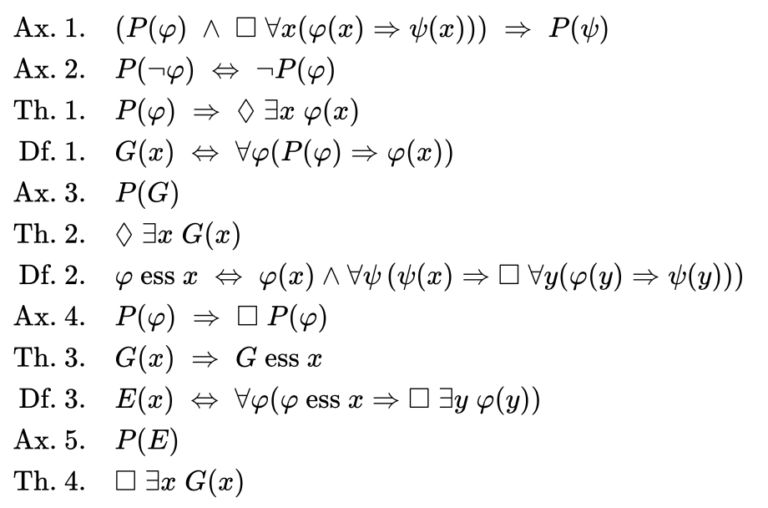 Faith & Science
Faith & Science
Marks, Bringsjord: Confound Your Atheist Friends with Gödel’s “God Theorem”


I recommend that you listen to a fascinating conversation over at Mind Matters. Robert J. Marks, who directs Discovery Institute’s Walter Bradley Center, talks with cognitive scientist Selmer Bringsjord of Rensselaer Polytechnic Institute about the unpublished “God Theorem” formulated by Kurt Gödel. You didn’t know that Gödel was a theist and that a proof of God’s existence was discovered among his papers when he died? Well here it is:

So you can just go ahead and share that with your atheist friends — post it on social media! — and watch them squirm.
I’m joking about that — but not about what an interesting podcast this is. Find it here at Mind Matters. Dr. Marks and Dr. Bringsjord also discuss Anselm’s ontological proof of God’s existence and Bringsjord gives as lucid and easy-to-follow a rendition of that as I have heard.
Images: “The Gulf Stream in Infrared,” via NASA; Kurt Gödel’s unpublished “God Theorem,” via Wikipedia.
